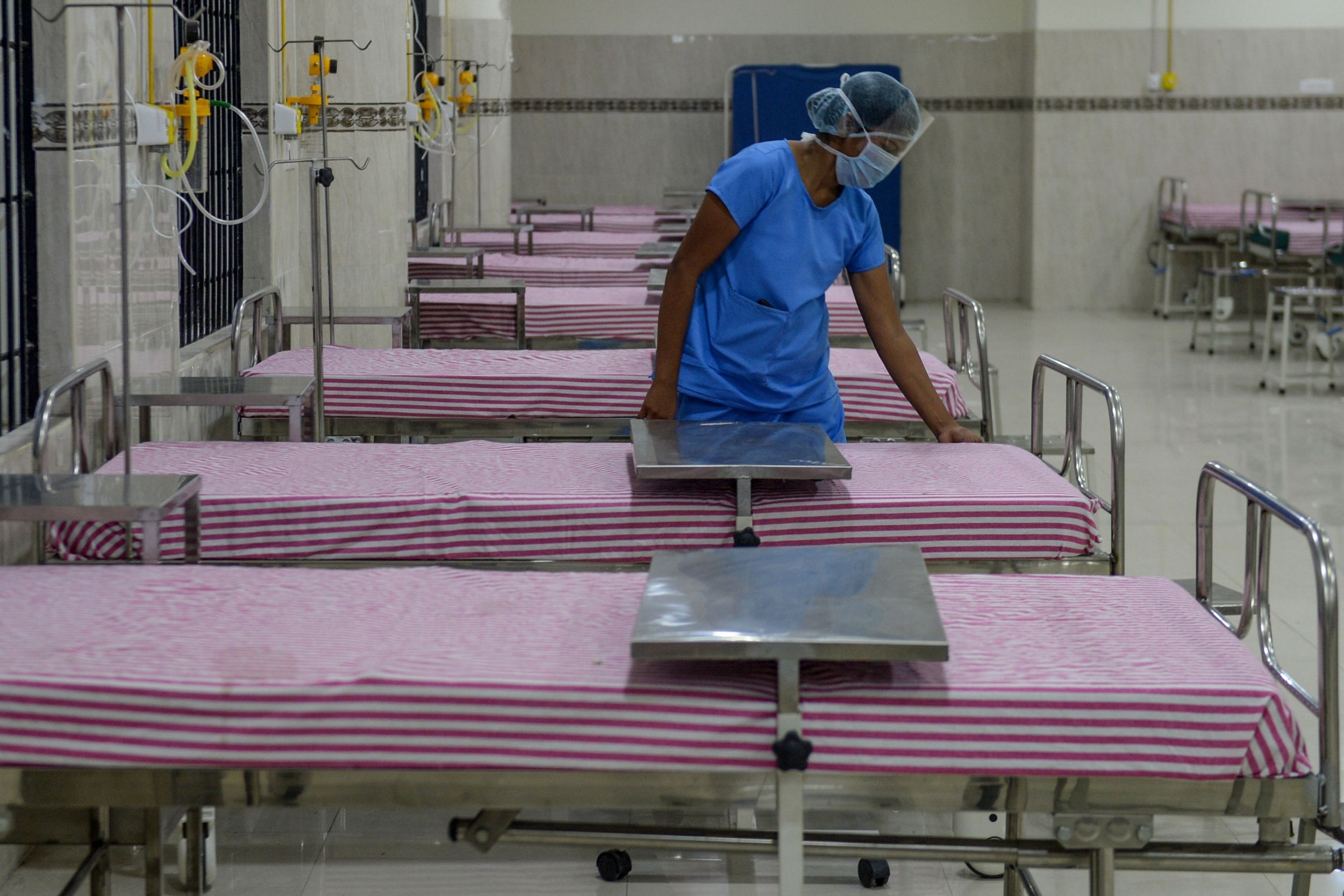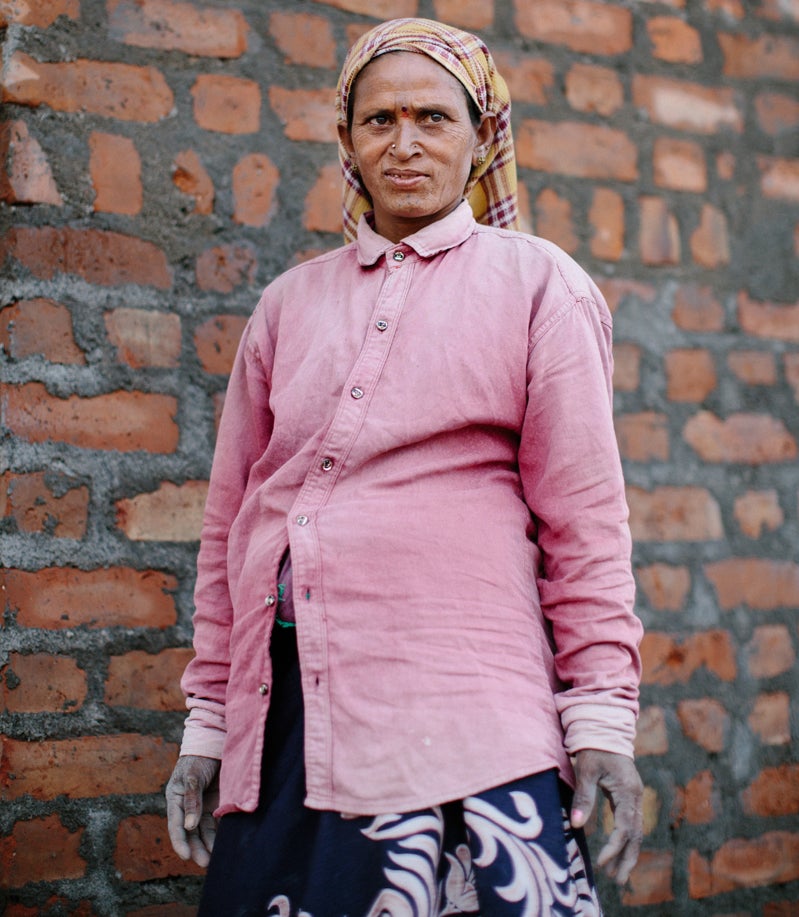Coronavirus: Why the Covid-19 crisis could be 'devastating' for Indians with leprosy
Weakened immune systems, open sores and deep-rooted prejudice make those affected by leprosy extremely vulnerable to the Covid-19 pandemic. Adam Withnall reports


Your support helps us to tell the story
From reproductive rights to climate change to Big Tech, The Independent is on the ground when the story is developing. Whether it's investigating the financials of Elon Musk's pro-Trump PAC or producing our latest documentary, 'The A Word', which shines a light on the American women fighting for reproductive rights, we know how important it is to parse out the facts from the messaging.
At such a critical moment in US history, we need reporters on the ground. Your donation allows us to keep sending journalists to speak to both sides of the story.
The Independent is trusted by Americans across the entire political spectrum. And unlike many other quality news outlets, we choose not to lock Americans out of our reporting and analysis with paywalls. We believe quality journalism should be available to everyone, paid for by those who can afford it.
Your support makes all the difference.As the threat of an epidemic looms large over India’s chronically underfunded healthcare system, doctors say the country’s outsize population of extremely vulnerable leprosy patients risk being cast aside amid the coronavirus crisis.
Despite leprosy being largely eradicated in many parts of the world by the turn of the century, stubborn pockets of the disease remain - and India accounts for around two-thirds of the 200,000 new cases reported globally each year.
In 2005, India declared it had eliminated of leprosy as a public health problem, but the resulting vacuum of funding, expertise and attention means the disease is “reemerging”, said Dr Aparna Srikantam, head of research at a centre in Hyderabad supported by the UK-based international charity Lepra.
Leprosy is a bacterial infection that attacks the peripheral nerves. It can be cured through drug treatments, but leaves some patients scarred by sores, cracked skin and amputated limbs.
“Even with our intact skin, we have seen that the virus is being widely transmitted,” Dr Srikantam told The Independent. “Imagine if your body is covered in open, chronic wounds — these people face the highest risk of contracting the virus.
“Many have hand deformities, with cracked, dry skin. They can’t maintain personal hygiene — and what are we all being told to do? Wash our hands. It’s a very striking risk they all face to the transmission of Covid-19.”
In India, up until 2005 those who were diagnosed with leprosy were given sheltered housing and benefits, in what became modern-day leper colonies. Despite more recent attempts to tackle stigma by returning sufferers into mainstream communities, many still live in such neighbourhoods - often in overcrowded conditions that are “really little better than a slum”, Dr Srikantam says, and where social distancing is particularly challenging.
Even once patients have been completely cured, they can suffer autoimmune “reactions” for years afterwards, excruciatingly painful episodes where the body’s natural defences overcompensate and it starts attacking itself. These reactions are treated with immunosuppressants, which leave the patient vulnerable to other infectious diseases.
Living with leprosy
Patlavat, 38
After giving birth to my daughter, I began to develop painful blisters on my feet. I visited a private doctor, who misdiagnosed me and prescribed me injections for a disease I did not have. There was no improvement, after months of these injections, so I went to a local hospital. There, they diagnosed me with leprosy and sent me to the Lepra Referral Centre.
I was given Multi Drug Therapy for 12 months and underwent strenuous counselling for both my disease and the impact it had on my personal life. My husband is very abusive and has serious issues with alcohol. He abandoned me shortly after I was diagnosed, but still returns occasionally to steal money from me.
I try to practise self-care every day and the sensations in my hands and feet have slowly improved. I have suffered severe reactions though, and this is a constant struggle. The surgery to fix the skin lesions inside my mouth is expensive and I cannot afford it. I cannot ask for help because only my sister in law knows that I have leprosy.
There is no one I can share my story with; no way I can lessen my burden. I have to live for my children’s sake, but I feel very depressed and alone.
Dr Barbara De Barros, clinical research fellow and doctor of infectious disease at the London School of Hygiene & Tropical Medicine, says that Covid-19 could have a potentially “devastating” impact on those suffering from such reactions.
“The corticosteroids used to treat leprosy reactions significantly alter the immune system. These people are at high risk of developing severe Covid-19 because of this.”
India has been under a nationwide lockdown since Tuesday night, and like many other essential workers Lepra’s outreach teams have struggled to navigate roadblocks that are being enthusiastically and coercively policed to deter people from leaving their homes.
And while theoretically leprosy patients have the right to travel to make use of medical services - courses of treatment can take many months - in practice there is no public transport available, and police are equally as likely to send them back as let them through.

Even if they get to hospitals, the nation’s health infrastructure is being frantically repurposed to focus entirely on Covid-19 alone. Even in India, the misconception exists that leprosy is no longer a serious disease, Dr Srikantam said.
“When they do present at hospital they may be turned away, they may face discrimination. Doctors may say: ‘Come on, we have many other things, serious things [to deal with]’. But for that patient who is suffering a reaction, they are in real pain. For them it really is a killing pain.”
“People with leprosy are already marginalised from health services,” said Geoff Prescott, chief executive of Lepra in the UK. “We expect this to worsen with a Covid-19 diagnosis.
“At times like this, we are expecting a huge growth in prejudice. When people turn inwards, they often become quite insular and prejudices are stoked. Therefore, people with leprosy will catch Covid-19, but also extra prejudice.”
Join our commenting forum
Join thought-provoking conversations, follow other Independent readers and see their replies
Comments